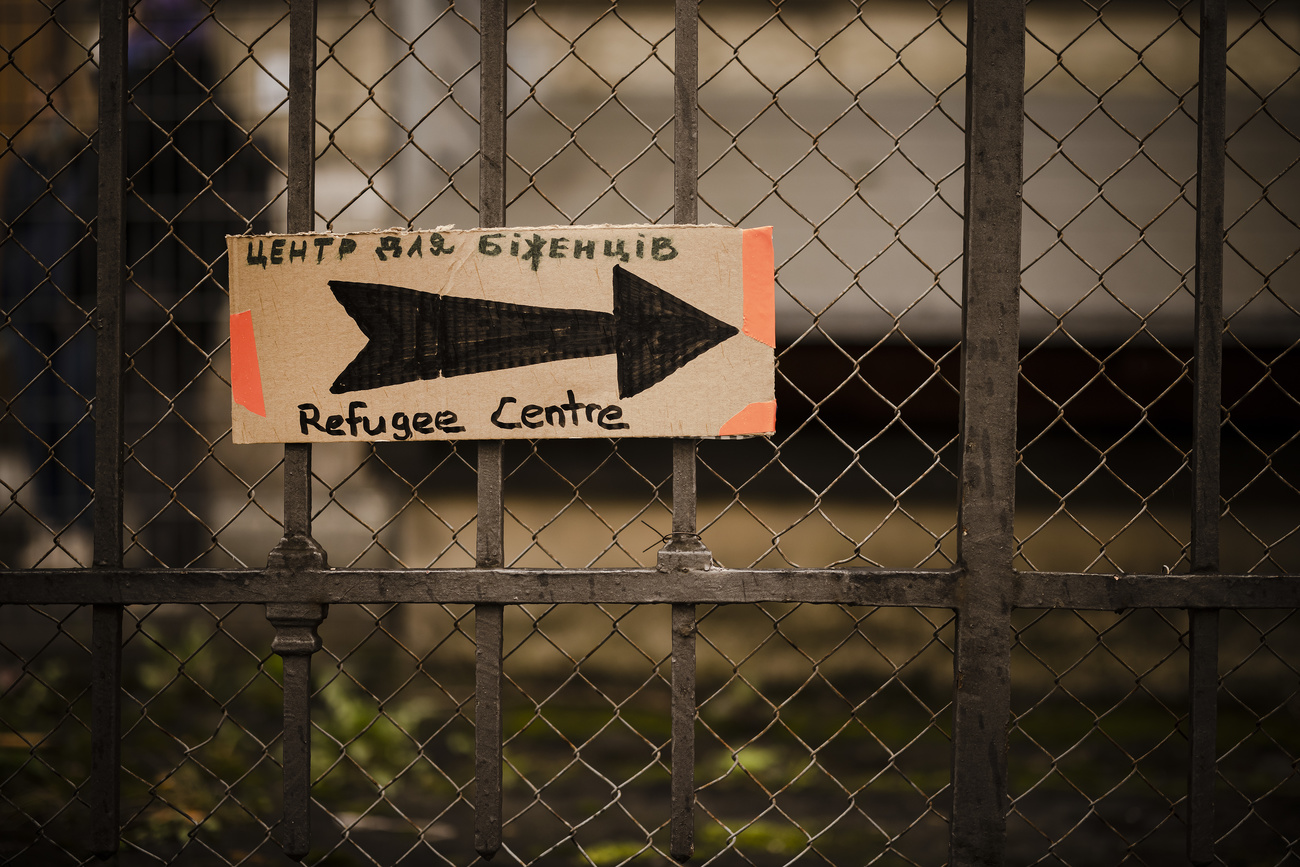
A third of Ukrainian refugees in Switzerland want to return home

Around a third of Ukrainian refugees in Switzerland hope one day to return to their country of origin, according to a survey.
The majority, 40%, are undecided on the matter, according to a survey conducted by the UN High Commissioner for Refugees (UNHCR), the Swiss State Secretariat for Migration (SEM) and Ipsos.
Another third of the Ukrainians questioned in the survey said they did not wish to return to their country. The main obstacles to return cited were security problems and the Russian occupation of the region in which they were living, lack of access to healthcare, and lack of work and livelihood opportunities.
Twenty-one per cent of Ukrainians who had fled their country were working in Switzerland at the time of the survey. For half of them, however, their current job was at a lower level than their previous job in Ukraine. Around a third of those surveyed were unemployed, while a quarter said they were in vocational training.
Language barrier
For the respondents, the language barrier is the biggest obstacle to their integration into the labour market. This is followed by a lack of job opportunities that match their qualifications, insufficient training and insufficient recognition of qualifications acquired in their country.
A total of 69% of Ukrainian refugees in Switzerland have a university degree. A clear majority of 79% are women and children. Most of them arrived in Switzerland shortly after the start of the Russian invasion, between February and April 2022.
The survey is based on 1,125 interviews conducted between March 30 and May 1 via an online questionnaire.
According to the latest figures from the State Secretariat for Migration (SEM), around 66,100 people from Ukraine with “S” protection status are still in Switzerland. More than 20,000 have left the country.
This news story has been written and carefully fact-checked by an external editorial team. At SWI swissinfo.ch we select the most relevant news for an international audience and use automatic translation tools such as DeepL to translate it into English. Providing you with automatically translated news gives us the time to write more in-depth articles. You can find them here.
If you want to know more about how we work, have a look here, and if you have feedback on this news story please write to english@swissinfo.ch.

In compliance with the JTI standards
More: SWI swissinfo.ch certified by the Journalism Trust Initiative

























You can find an overview of ongoing debates with our journalists here . Please join us!
If you want to start a conversation about a topic raised in this article or want to report factual errors, email us at english@swissinfo.ch.